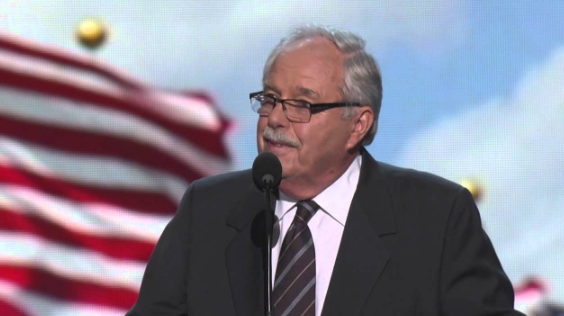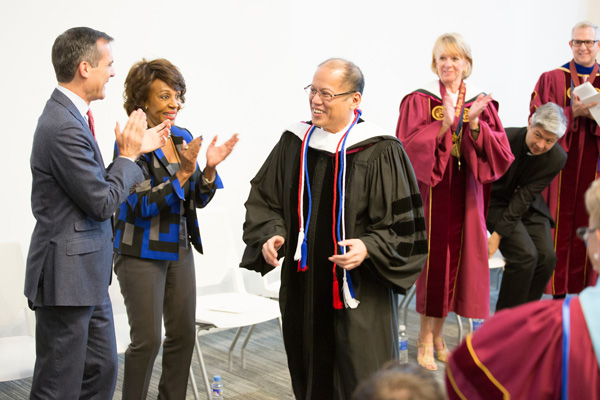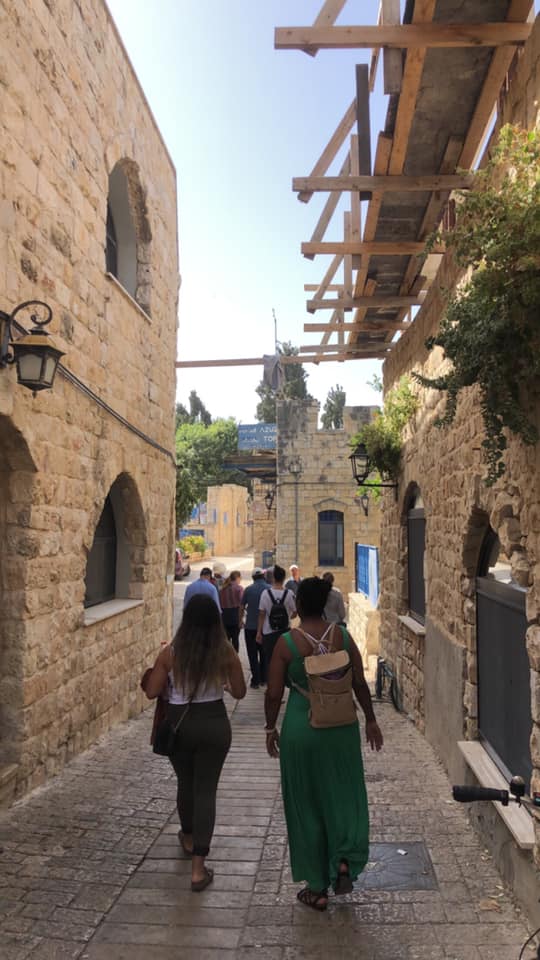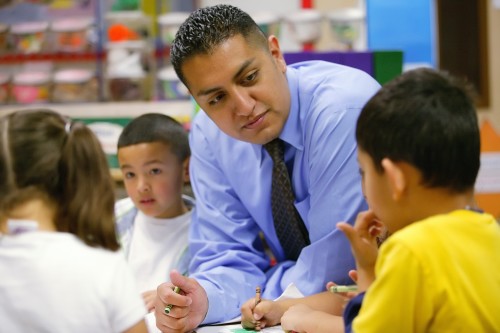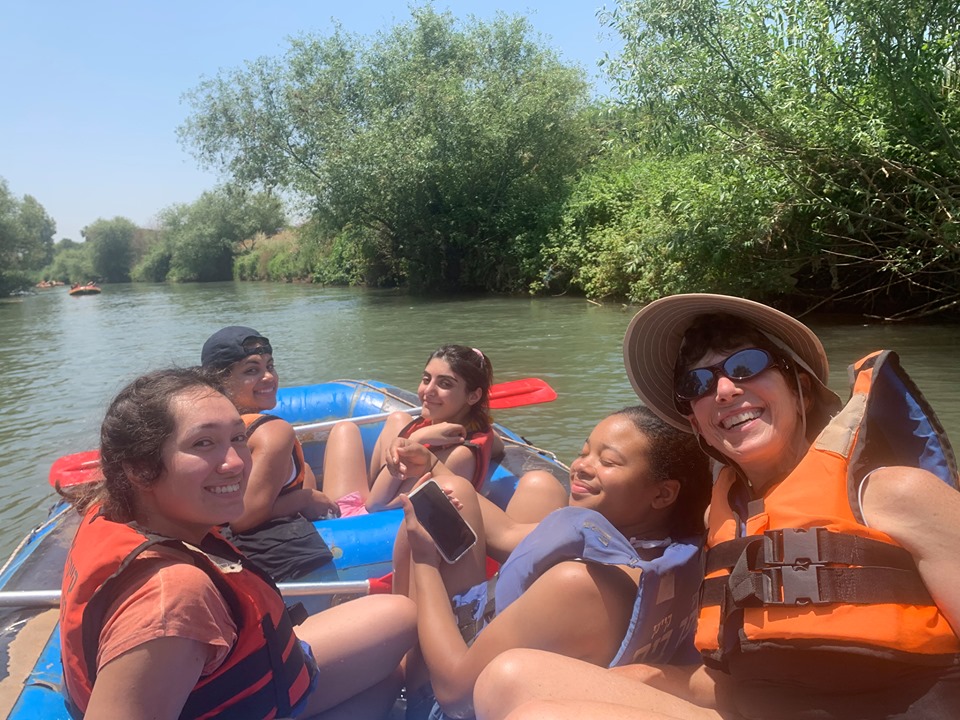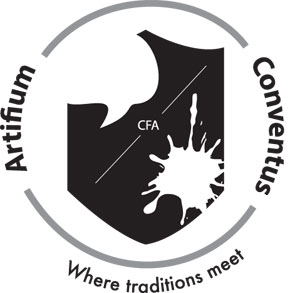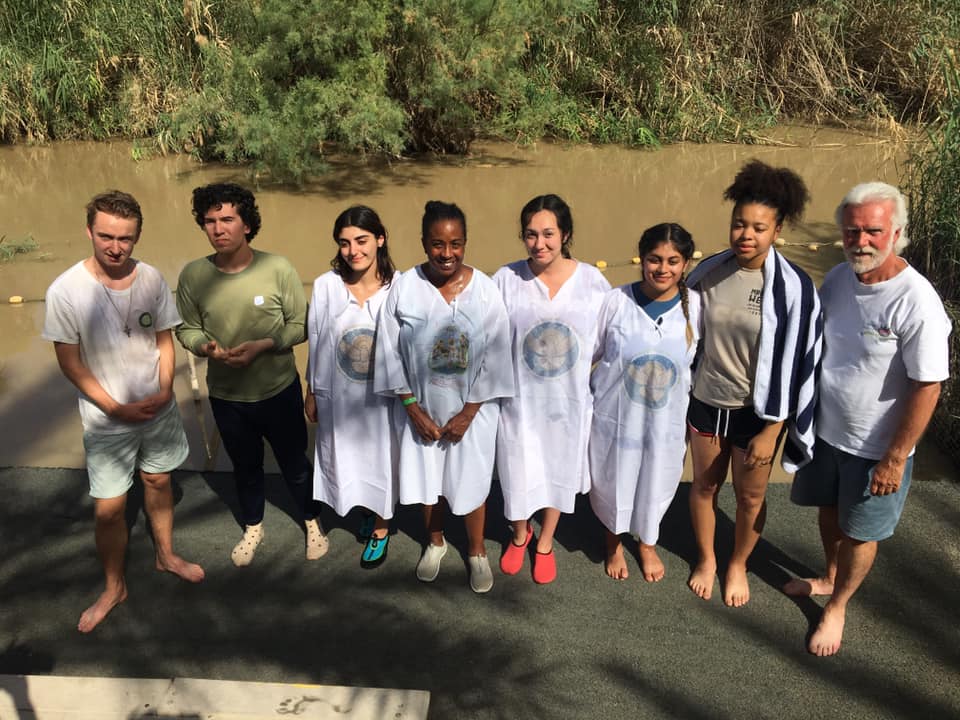
In Judaism, tikkun olam and tzedakah are grounding religious values. These ideals, which roughly translate as “repairing the world” and “charity,” also served as the framework for “Literature and Faith in the Holy Land,” a summer study abroad course in Israel offered by the LMU Bellarmine College of Liberal Arts.
The first iteration of this course was taught on-campus in spring 2011 and has evolved into a full-immersion experience where the itinerary complements the syllabus—comprised of poetry, essays, and films– 24/7 for two-weeks. Students enrolled in the summer 2019 course were familiarized with the literary and religious diversity in Israel first through preliminary readings and films, which provided the intellectual and academic underpinnings for cultivating personal, social, moral and spiritual awareness. In Israel, the students were then introduced to people and organizations actively engaged in tikkun olam and through these interactions developed a deeper understanding for how to experience and practice hospitality and gratitude.
“The course is designed for students to come away from the trip with an advanced knowledge of how to create and advance compassion, curiosity, and kindness,” said Professor Holli Levitsky of the English Department and director of Jewish Studies at LMU.
Each day of the trip offered opportunities for deep spiritual and/or literary engagement, which sparked many “aha” moments for students. One such encounter was with an Ethiopian Jewish refugee who shared the story of her emigration to Israel and, in doing so, illuminated a much larger and complex history. Severed for centuries from other Jewish communities, Ethiopian Jews believed they were the last Jews in the world. When the Israeli government discovered the community, they openly welcomed them home. Learning that Jews come to Israel from Africa and the Arab world broadened students’ understanding of the diversity of Israelis and Jews in particular.
“The most moving piece of the trip was engaging with people,” said Nina Gibson, an LMU graduate student in the English creative writing program. “Meeting an Ahmadiyya Muslim leader whose teachings are to treat their enemies like friends; an Arab Christian who loves Israel yet can’t keep the next generation from deserting the home he cherishes for a better life; and the Jewish community members who showed us how to remember, forgive, and move on.”
The LMU students on the trip were just as diverse in backgrounds and religious traditions as their Israeli hosts. The group included first-generation college students, students of color, foreign-born students, Catholic, Christian, Muslim, Jewish, and religiously-unidentified students, majors from several colleges, and from first year through graduate school. Several students from the Academy for Jewish Religion-California also enrolled. Students were encouraged to let their core beliefs and religious convictions come through in course assignments and candid discussions.
“The openness and vulnerability of the students on the trip led to open questioning and enhanced understanding of the other,” said Levitsky. “That they were coming to a land with its own challenges and charged energy added multiple layers to the experience.”
Interacting across cultures with different individuals was enlightening: Students observed hospitality in action with hosts and guests offering and accepting mutual respect even within contentious environments. As students engaged with various religions’ sites and rituals, they also learned how to be present for others as witnesses to their beliefs, recognizing but not necessarily participating in them.
One moving example of this transpired on a visit to the religiously and historically significant Quasr El Yahud baptismal site on the Jordan river, traditionally associated with the activities of John the Baptist and the entry of Joshua and the tribes of Israel into Canaan. Seven LMU students—who did not know each other before the class– chose to be baptized by Father Alexei Smith, director of ecumenical and interreligious affairs for the Archdiocese of Los Angeles and one of the leaders on the trip. In their rented white gowns, hands held together tightly, they participated in the baptism communally, while the other students watched as witnesses to the tradition’s sacred rite.
Because of the high cost of traveling to Israel, few of the students on this trip would have been able to afford it without scholarships and the generosity of BCLA donors. The unique opportunity to study literature and faith in the Holy Land transformed them and they returned as compassionate (and curious) global citizens committed to being present for others.



